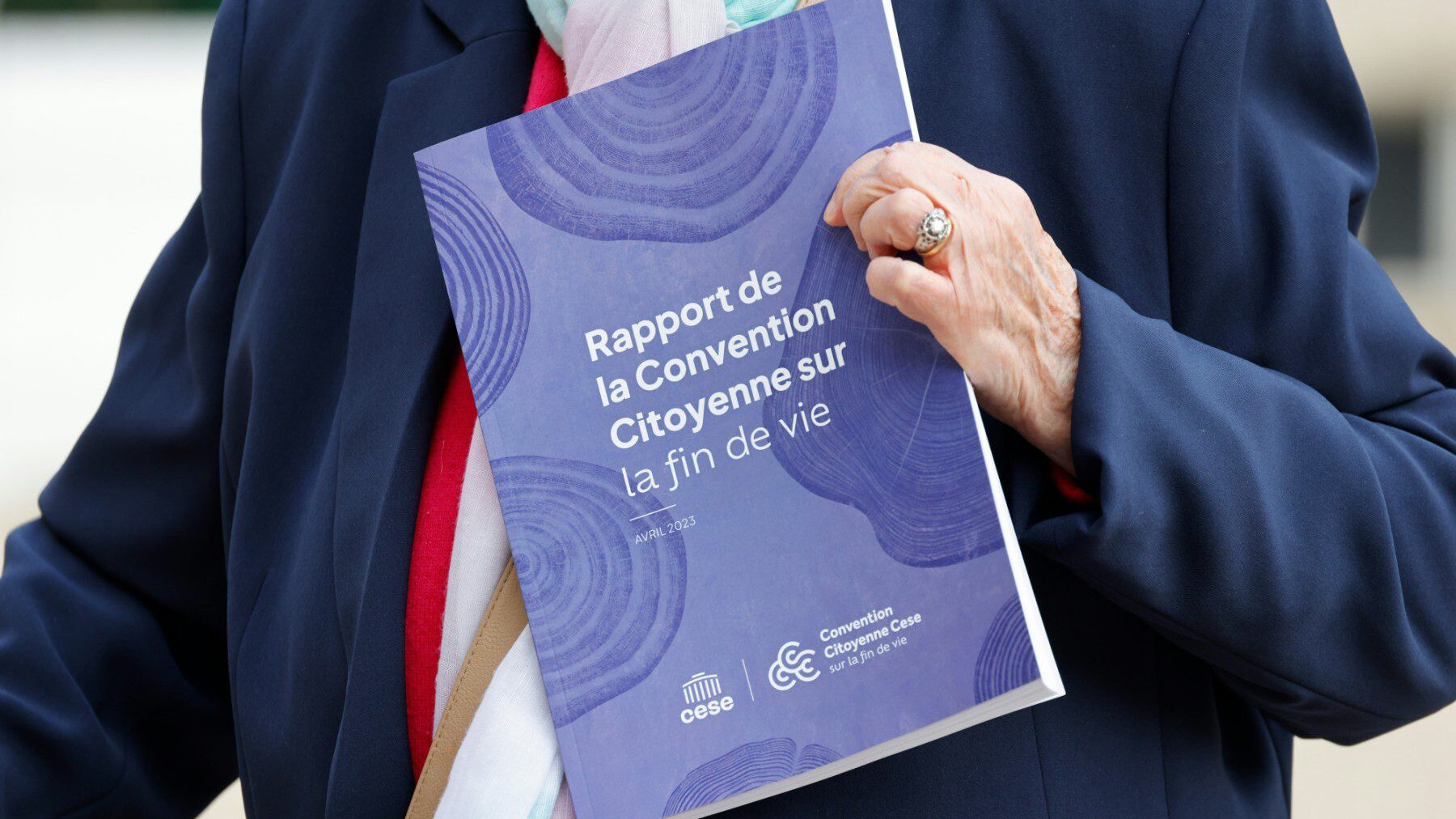
A convention member holds a document reading “report of the Citizens’ Convention on the End of Life” prior to a meeting between the French President and members of the “Citizens’ Convention on the End of Life” (“Convention citoyenne sur la fin de vie”) at the Élysée Palace in Paris on April 3, 2023.
Photo: Ludovic MARIN / AFP
Although the results had already been known for several weeks, the citizens’ convention—an arbitrarily chosen group asked to rule on the possibility of legalising euthanasia in France—definitively and officially decided to vote in favour of “active assistance in dying.” Emmanuel Macron intends to waste no time and will see to it that the law is passed by the summer.
In the report submitted to the Élysée Palace on Sunday, April 2nd, three quarters of the voters in this assembly of 184 participants, drawn by lot, came out in favour of active assistance in dying—whether in the form of euthanasia or assisted suicide. However, this recommendation is accompanied by important restrictions. The president of the republic will “draw the conclusions of this work and map out the paths of an Act II in this national debate,” the Élysée said on Sunday.
On Monday, April 3rd, President Macron personally received the 184 members of the convention. However, the executive was keen to point out that it was not bound by the results of the convention, and that its recommendations would in all likelihood not be adopted as voted upon. The members of the convention “do not decide in place of the authorities, who have the legitimacy to do so,” but “their conclusions are important, and they will be taken into consideration,” the Élysée assures.
The conclusions of the convention are paradoxical because while the citizens’ assembly is overwhelmingly in favour of active assistance in dying, it also insists heavily on the importance of developing palliative care—two concepts that specialists know to be contradictory, one being open to life and the other seeking to end it.
The next step will certainly be the vote on a law, which the government wants to expedite. The political divide on the subject is very marked. The Left and the Centre are unanimously in favour of what they see as progress for society. Jean-Luc Mélenchon has welcomed what he calls “one more freedom,” while considering that a referendum on the subject would be welcome. But the French constitution does not currently allow for a referendum on societal issues.
On the Right, the prospect of legalising euthanasia is facing strong opposition. Marine Le Pen called on Sunday on LCI (a French news channel) for “resources for palliative care,” announcing that she would vote against a law favouring euthanasia.
A major objection came a few days ago from the Order of Physicians, which said it was “unfavourable” to doctors participating in “a process that would lead to euthanasia.” A doctor “cannot deliberately provoke death,” it said. The Order of Physicians is calling for a conscience clause to be added to legislation on assisted suicide, as exists for abortion. The Order of Physicians particularly disapproved of euthanasia for minors, or for persons manifestly lacking the ability to make an enlightened decision. It also supports strengthening palliative care.
Unfortunately, the opinion of the Order of Physicians was ignored during the debate on extending the legal time limit for performing abortions—the Order was opposed to extending the time limit from 12 to 14 weeks of pregnancy. The government is unlikely to follow its recommendations this time around either.
